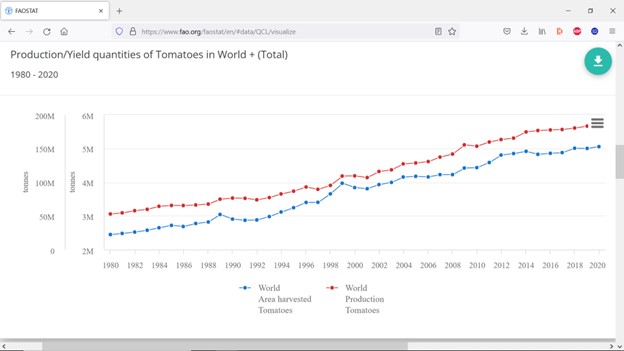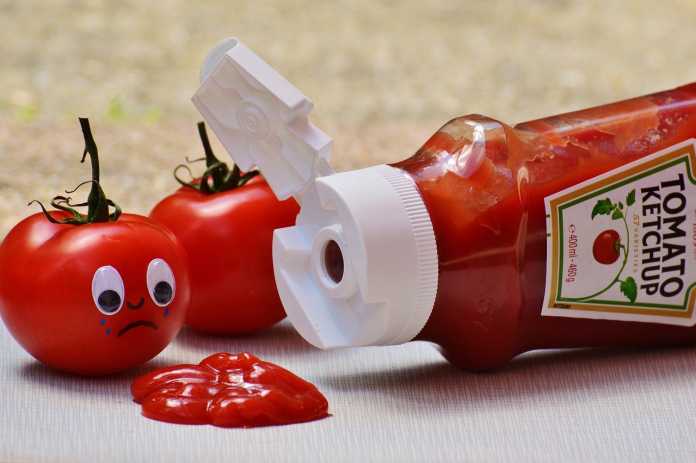USA Today has posted a video article claiming global warming threatens doom for ketchup lovers. The short video claims global temperatures are making it hard for tomato growers to keep up production. However, a quick look at global tomato production data shows increases in long-term, medium-term, and short-term tomato production. In fact, tomato production sets new records every year as the planet modestly warms.
In a USA video article titled “Ketchup Shortage Possible Due to Climate Change,” the author says, “If you like ketchup, listen up. A study predicts a sad outlook for ketchup lovers. Climate change could impact the amount of tomatoes grown worldwide.”
The article says the world’s major tomato-producing regions could see a steady decline in tomato production due to warming temperatures.
Fortunately, we have access to actual tomato data that can confirm the tomato claim or call it into question. The image below is taken directly from the United Nations Food and Agriculture Organization website. As you can see, global tomato production has increased nearly every single year for the past 40 years. As temperatures rise, so does tomato production. We are in a golden age of tomato production as temperatures continue their modest warming.

If warmer temperatures harm tomato production, why haven’t we seen declines in tomato production yet? Are we really to believe that we are just about to reach global temperatures that will cause tomato production to fall off a cliff? If so, under what logic or evidence?
The newly asserted ketchup scare follows a long-established pattern of climate alarmists asking themselves what Americans love, and then claiming climate change is harming it – no matter what the objective evidence says. Alarmists, for example, have made similar debunked claims regarding chocolate, wine, beer, coffee, and a host of other beloved products.
The reality is, we at Climate Realism will wager a substantial sum of money against USA Today’s tomato claim. We’ll also happily wager a substantial sum of money against anybody who would like to put their money where USA Today’s mouth is.
[Image courtesy of Pixabay.]























